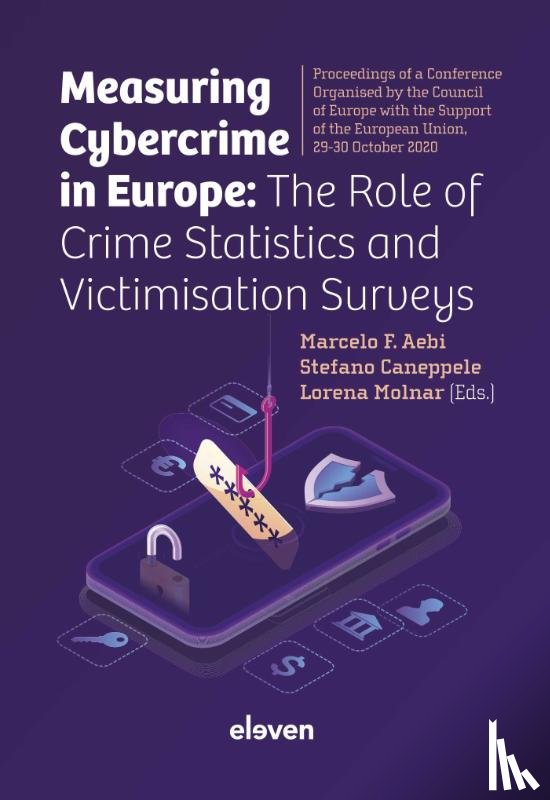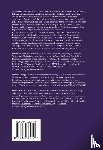Omschrijving
This book contains the various experiences, reflexions, and proposals of cybercrime experts, as shared during a cybercrime conference organized by the Council of Europe and the European Union. Cybercrime has become part of everyday life. We live in hybrid societies, fluctuating between the material and the virtual world, and we are hence confronted with online, offline and hybrid offences. However, the few victimisation surveys conducted in Europe reveal that victims of online crimes seldom report them to the police. Consequently, cybercrimes – which according to the best estimates represent between one third and more than half of all attempted and completed crimes in Europe – seldom appear in national criminal statistics. The State seems powerless to prevent them and private security companies flourish.
During two days, experts from all over the continent gathered together in the framework of a virtual conference organized by the Council of Europe and the European Union to discuss what we know, what we do not know, and what we could do to improve our knowledge of crime in our contemporary hybrid societies, develop evidence-based criminal policies, provide assistance to crime victims, and implement realistic programs in the field of crime prevention and offender treatment. This book presents their experiences, reflexions, and proposals.
Marcelo F. Aebi, PhD, is Professor of Criminology at the University of Lausanne, Switzerland. He is also a consultant expert of the Council of Europe, head of the European Sourcebook Group, executive secretary of the European Society of Criminology and chair of the Scientific Advisory Board of the Netherlands Institute for the Study of Crime and Law Enforcement (NSCR). He publishes regularly in scientific journals in English, French, Spanish and Italian. https://orcid.org/0000-0002-3449-1093.
Stefano Caneppele, PhD, is Professor of Criminology at the University of Lausanne, Switzerland. Among his research domains, he is interested in the study of the interaction between technology, crime and its social reaction. He is also a consultant expert of the Council of Europe and member of the European Sourcebook Group of Crime and Criminal Justice Statistics. https://orcid.org/0000-0003-3924-4937.
Lorena Molnar, MA, is a PhD candidate and research assistant at the University of Lausanne, Switzerland. Her main domains of interest are comparative criminology, innovation in methods and hard-to-reach vulnerable populations. She is a member of the SPACE (Statistiques Pénales Annuelles du Conseil de l’Europe) team and of the European Sourcebook Group and co-author of the sixth edition of the European Sourcebook of Crime and Criminal Justice Statistics. https://orcid.org/0000-0001-8692-9256. Measuring Cybercrime in Europe: A Conference Introduction; Towards Hybrid Measures of Crime for a Hybrid Society; Lessons Learned from a Council of Europe’s Conference on Measuring Cybercrime; Welcome Addresses; Opening Session: Cybercrime in Times of Covid-19 and in Post-Covid-19 Era; Covid-19 and Cybercrime: What We Know, What We Do Not Know and What We Shall Measure; Session 1 – Modernising Crime and Justice Statistics; The International Effort in the Modernisation of Crime Statistics; The Budapest Convention and the Classification of Cybercrime for Statistical Purposes: Some Observations; Cybercrime Data in Estonia: Surveys and Statistics; Cybercrime Statistics in Spain; Self-Reported Delinquency Surveys and the Study of Online Offending/Cybercrime – Looking Back and Forward from a Total Survey Error Approach; Session 2 – Modernising Victimisation Survey; Introduction; Crime Victimisation Surveys Measuring Cybercrime; Cybercrime Victimisation Research in the Netherlands – Lessons Learnt from Past Studies; Finland’s Experiences in Cybercrime Surveys; Measuring Cybercrime in the Crime Survey for England and Wales; Measuring Cybercrime: A Panel Discussion; Session 3 – Rethinking Victims’ Assistance and Deterrence Models; Which Assistance for Cybercrime Victims?; The Internet Organised Crime Threat Assessment; Counting Cybercrimes Reduction: Deterrence, Diversion and Desistance; Rethinking Victims’ Assistance and Deterrence Models: A Panel Discussion; Closing Session




